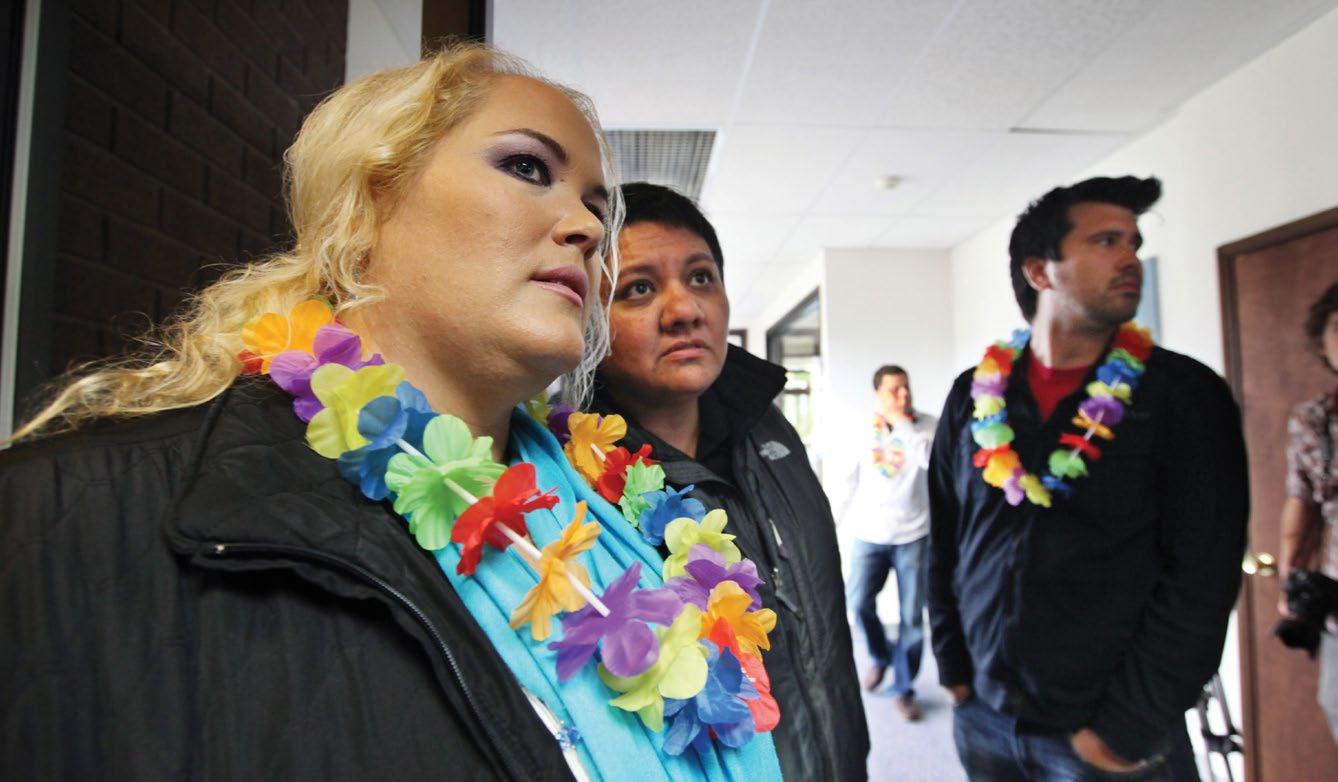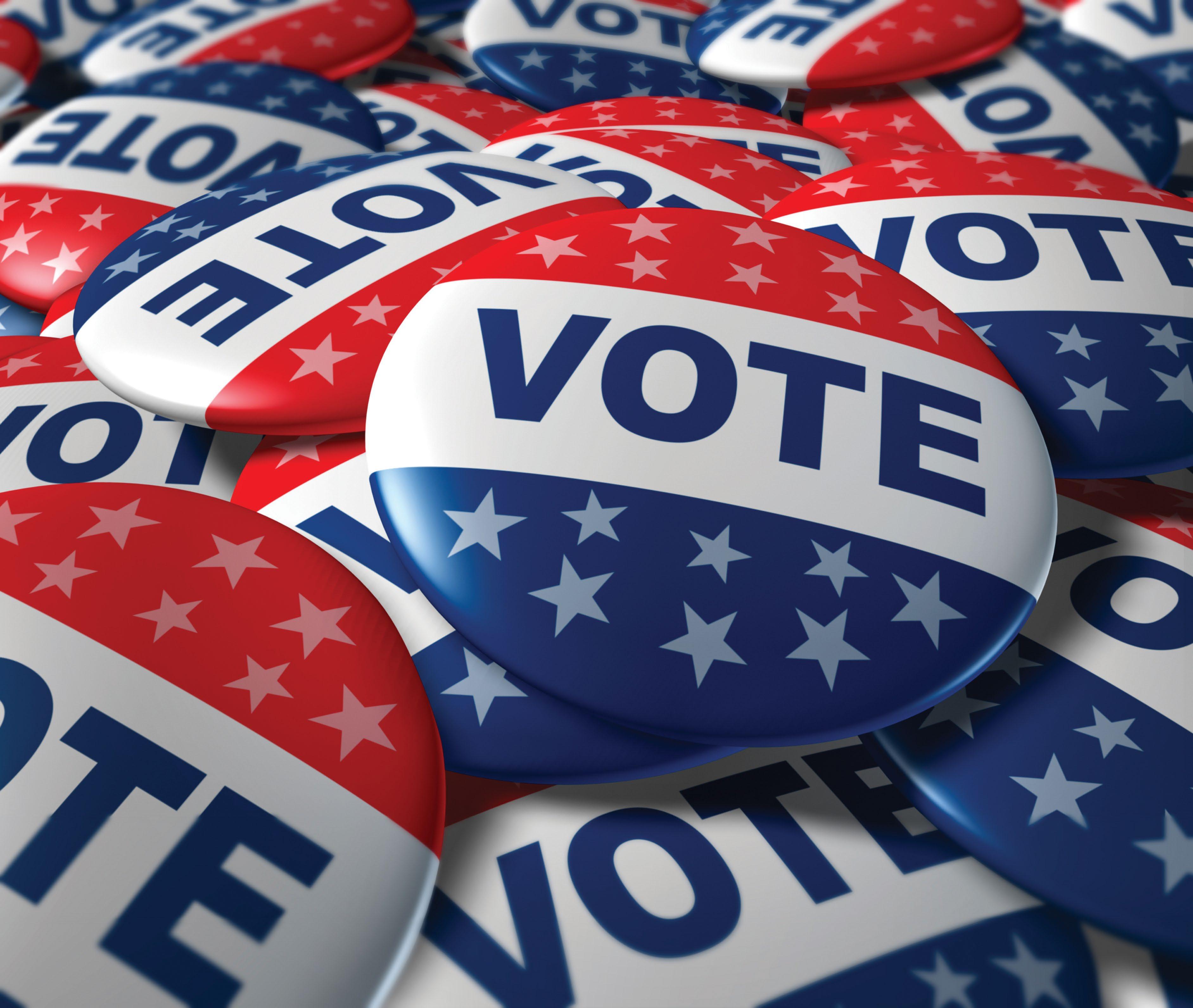
6 minute read
GAY MARRIAGE
THE CHANGING FACE OF MARRIAGE
by Jennifer Ginn
GAY MARRIAGE
PORTLAND, MAINE—David Farmer, spokesman for Mainers United for Marriage, said President Obama’s support for gay marriage gave a burst of energy to supporters. © AP/Corbis/Robert F. Bukaty
While same-sex couples can walk down the aisle in only six states and the District of Columbia, that doesn’t accurately represent the number of gay people whose relationships have some type of recognition.
“In the majority of states, same-sex couples do not have any legal protection and state constitutions have been amended to prevent same-sex marriages,” said Jennifer Pizer, legal director of the Williams Institute at the University of California-Los Angeles School of Law. The institute researches gender identity and sexual orientation law and public policy. “However, when you look at the country by population, you have a somewhat different picture.”
Nearly half the U.S. population lives in a state that offers some kind of recognition for same-sex couples, either marriage, civil unions or domestic partnerships.
“That’s very confusing for lesbian and gay couples in this country,” Pizer said.
“If you look at a map of the country, legally it’s a patchwork of different kinds of laws protecting same-sex couples.”
Same-sex couples now can marry in Connecticut, Iowa, Massachusetts, New Hampshire, New York and Vermont, as well as the District of Columbia.
Maryland and Washington could join those ranks after legislators approved laws recognizing same-sex marriages in the 2012 session. Washington’s new law was to take effect in June and Maryland’s in January, but both will face challenges on the November ballot. Although every same-sex marriage law that’s been placed on the ballot so far has been defeated, Pizer believes things could be different in Washington and Maine, where a citizen-led initiative is on the ballot, this year.
Washington State’s Journey
Sen. Edward Murray sponsored Senate Bill 6239, which legalized same-sex marriage in Washington. Civil rights for same-sex couples have evolved gradually in the state. A 2006 bill protected gays and lesbians from discrimination in employment, housing and financial transactions. Domestic partnership was passed in 2007, and in 2009, what came to be known as the “everything but marriage” act was signed into law.
Although Washington state has extensive protections for same-sex couples, Murray said domestic partnerships have limitations.
“Our society understands marriage,” he said. “They understand what it means legally and the responsibility two people take for each other. Domestic partnership is just not something that’s worked very well.”
Sen. Dan Swecker, who led the floor fight against Senate Bill 6239, said he believes all sorts of people love each other, but only one relationship—heterosexual marriage—can impact so many government services if it fails.
“The only one of those that has unique differences from all the others is the one that produces children,” Swecker said. “There’s a huge incentive for government to sanction that one relationship. … If that is successful, it prevents all kinds of impacts on government institutions, like education and law enforcement.”
Murray is optimistic the same-sex marriage law will survive November’s referendum.
“I think we have a good chance,” Murray said.
“I think it will be close. I expect it to be ugly. But I think we will win.”
Maine’s Circuitous Route
Maine is no stranger to same-sex marriage. In 2009, the legislature passed, and the governor signed, a same-sex marriage bill into law. Later that year, voters repealed the law through a referendum. The issue will be on the ballot again in November, but this time a yes vote means you support same-sex marriage, which is a first in the country.
David Farmer, communications director for Mainers United for Marriage, said the organiza- tion has been conducting an education campaign since 2009. Farmer also expressed optimism for the November vote, citing polling that shows a ma- jority of the states’ residents supporting same-sex marriage.
“The most important thing it means is loving, committed couples in Maine would be able to get married,” he said, “an opportunity they came very close to in 2009 and saw slip away. … In terms of national consequence, it would be a demonstration at the ballot box of what we’re seeing in the polls and attitudes of people. … We would see people can support this at the ballot box. That would be a major turning point in this issue.”
Carroll Conley, executive director of the Christian Civic League of Maine, which opposes same-sex marriage, believes there is some issue fatigue in Maine.
“I do believe there would be people in the state of Maine that feel we spoke clearly … on the referendum just three years ago,” Conley said.
He said the state could consider an amend- ment, like the one that North Carolina voters overwhelmingly passed in May.
“Certainly that’s going to be something we hope would happen,” he said. “We very much look forward to the opportunity to make the case to the people of Maine about what we think are the perils of redefining an institution … seen as this building block of civilization.”
Pizer, of the Williams Institute, said she expects same-sex marriage laws in the states eventually will become more consistent.
“I think most of us anticipate, as years pass, it will go from this complicated set of arrangements to a simpler, more consistent set of laws,” she said. “We’ve seen some similar developments with family law on other issues. … For example, divorce is universally available in all the states. A few generations ago, that was certainly not the case. Common law marriage was common a few generations ago, now it’s not.”
2012 Same-Sex Marriage Legislation
} In Colorado, a civil unions bill seemed likely to pass with Republican support, but was never brought to the floor for discussion and a vote. } Maine voters will consider a referendum to allow same-sex marriages in November. } Maryland voters will decide in November if they want to uphold a same-sex marriage law passed by the legislature this year. } Minnesota voters will consider a proposed amendment in November that recognizes marriages as being only between one man and one woman. } The Republican-controlled House in New
Hampshire overwhelmingly turned down an effort to repeal its same-sex marriage law.


} The New Jersey legislature passed a bill allowing same-sex marriage, but Gov. Chris Christie vetoed it. Legislators have until January to determine if they have enough votes for an override. } In May, North Carolina voters approved, by more than 60 percent, an amendment to the state constitution effectively banning marriages, civil unions and domestic partnerships for same-sex couples. } Rhode Island Gov. Lincoln Chafee signed an executive order recognizing out-of-state samesex marriages, though same-sex couples will not be able to divorce there. } Washington voters will consider a referendum in November on whether they want to repeal a law passed by the legislature this year that allows same-sex marriage.
PETITION REACTION
OLYMPIA, WASH.—Judy Lumm, left, and her partner Stacie Leanos and Scott Smriga, right, look on from the back at a June news conference about petitions being filed for Referendum 74 to stop Washington's gay marriage law. The three support gay marriage and oppose the referendum. Same-sex marriage was blocked from taking effect as opponents filed more than 200,000 signatures seeking a public vote on the issue in November. © AP Photo/Elaine Thompson










